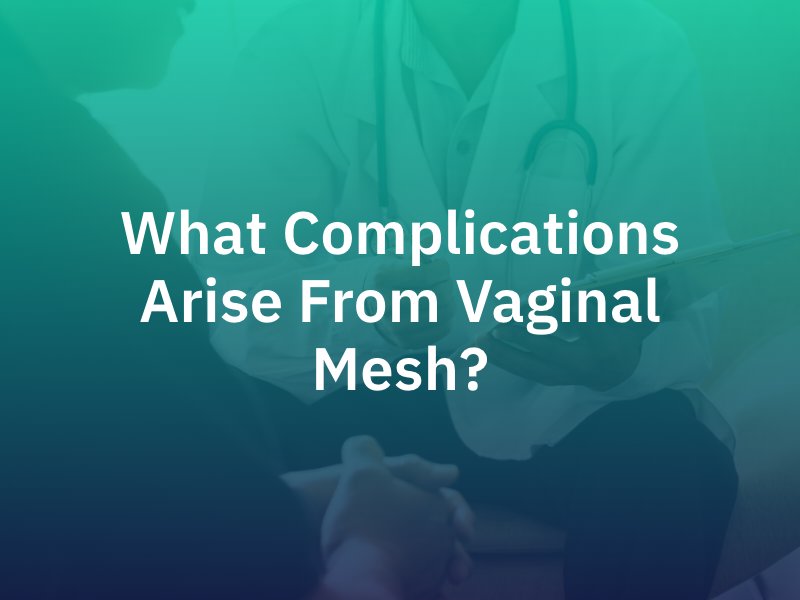What Complications Arise From Vaginal Mesh?
Posted on November 22, 2021 in Medical Malpractice
Vaginal meshes do serve legitimate medical purposes, but they can also malfunction and lead to significant pain and suffering for women. Complications from surgical meshes used to treat transvaginal pelvic organ prolapse (POP) are not uncommon. Here, we want to discuss the purposes of a vaginal mesh as well as the risks and complications associated with these devices.

What is the Purpose of a Vaginal Mesh?
Surgical vaginal meshes are used to treat a few different issues that could arise in women. This mesh is a surgical product used to provide extra support when repairing damaged or weakened tissue. In general, surgical mesh is used to treat the following pelvic floor disorders:
- Pelvic organ prolapse (POP)
- Stress urinary incontinence (SUI)
How Often do Complications Occur?
There are significant safety concerns surrounding the use of vaginal meshes to treat pelvic floor disorders. To be clear, every surgical device and medical procedure comes with risks, but the use of vaginal mesh to treat POP has been associated with higher rates of mesh complications than other procedures. This includes, but is not limited to, the following:
- Vaginal mesh erosion. This Is the most common complication associated with the use of vaginal meshes to repair pelvic organ prolapse is. Nonabsorbable synthetic surgical meshes, specifically the ones made of polypropylene and polyester, can break down and wear away over longer periods of time. Parts of this mesh could become exposed and protrude through the vagina.
- Erosion of mesh into other organs. Parts of the vaginal mesh could also erode and move into the urethra, rectum, or bladder.
- Vaginal mesh contraction. The shortening or tightening of the vaginal mesh over time could lead to vaginal shortening, tightening, and pain.
Some other complications that can occur as a result of vaginal mesh include pain during sexual intercourse, infections, bleeding, urinary problems, vaginal scarring, vaginal discharge, neuromuscular problems, abscesses, and a return of the pelvic organ prolapse.
Some reviews estimate that as many as one in four women with a transvaginal mesh implanted to treat POP may suffer from complications. In 2016, the FDA reclassified surgical mesh for transvaginal repairs as a Class III device, which is the highest rating for any medical device that must be approved by the FDA.
In 2019, the Food and Drug Administration (FDA) ordered that manufacturers of surgical mesh for the use of treating POP stop selling and distributing these products in the US. These actions were taken by the FDA due to a significant increase in negative effects associated with transvaginal mesh to treat this disorder.
Contact an Attorney After Vaginal Mesh Complications
If you or somebody you love has experienced complications following a vaginal mesh procedure to treat POP, please speak to our Portland medical malpractice attorneys as soon as possible. A skilled product liability lawyer can fully investigate every aspect of your claim. They will use their resources to investigate the type of mesh specifically used in your case and examine all of your medical records. Importantly, an attorney will help ensure that you receive an independent medical evaluation. They will handle all communication and negotiations with other parties involved and work diligently to recover total compensation for your losses.
